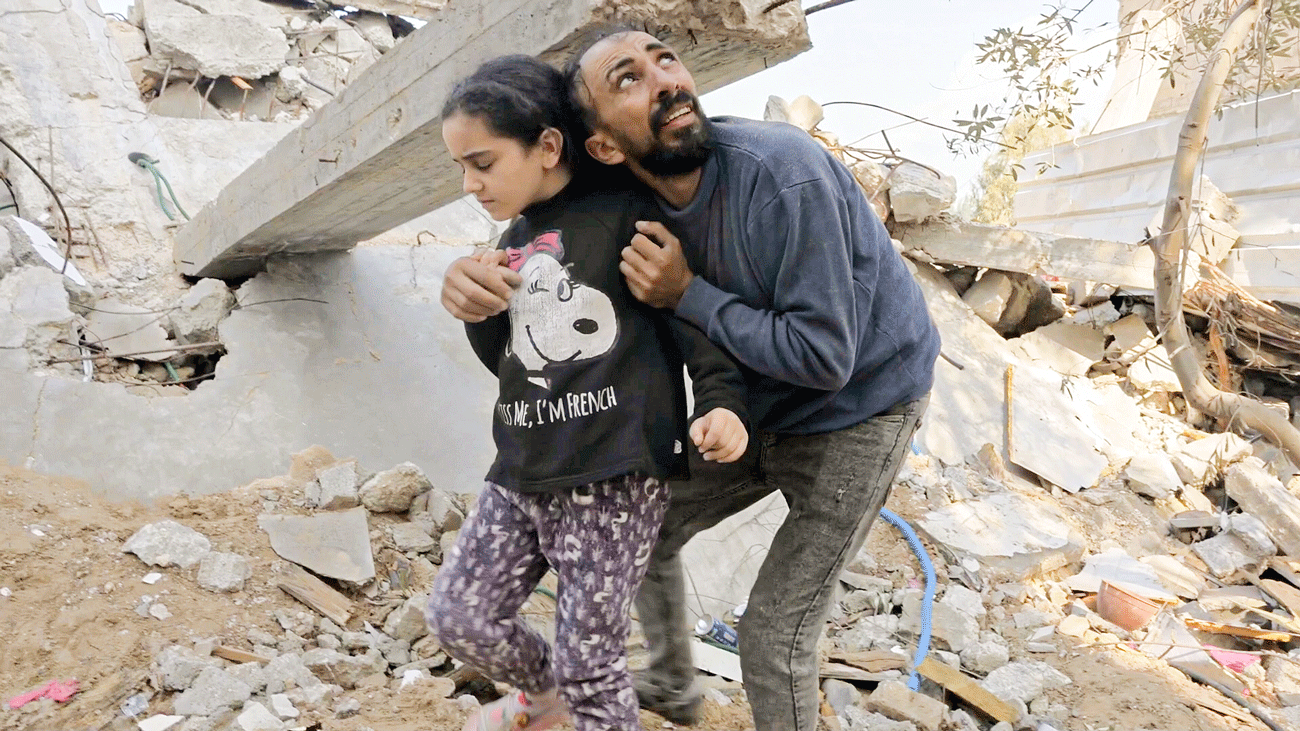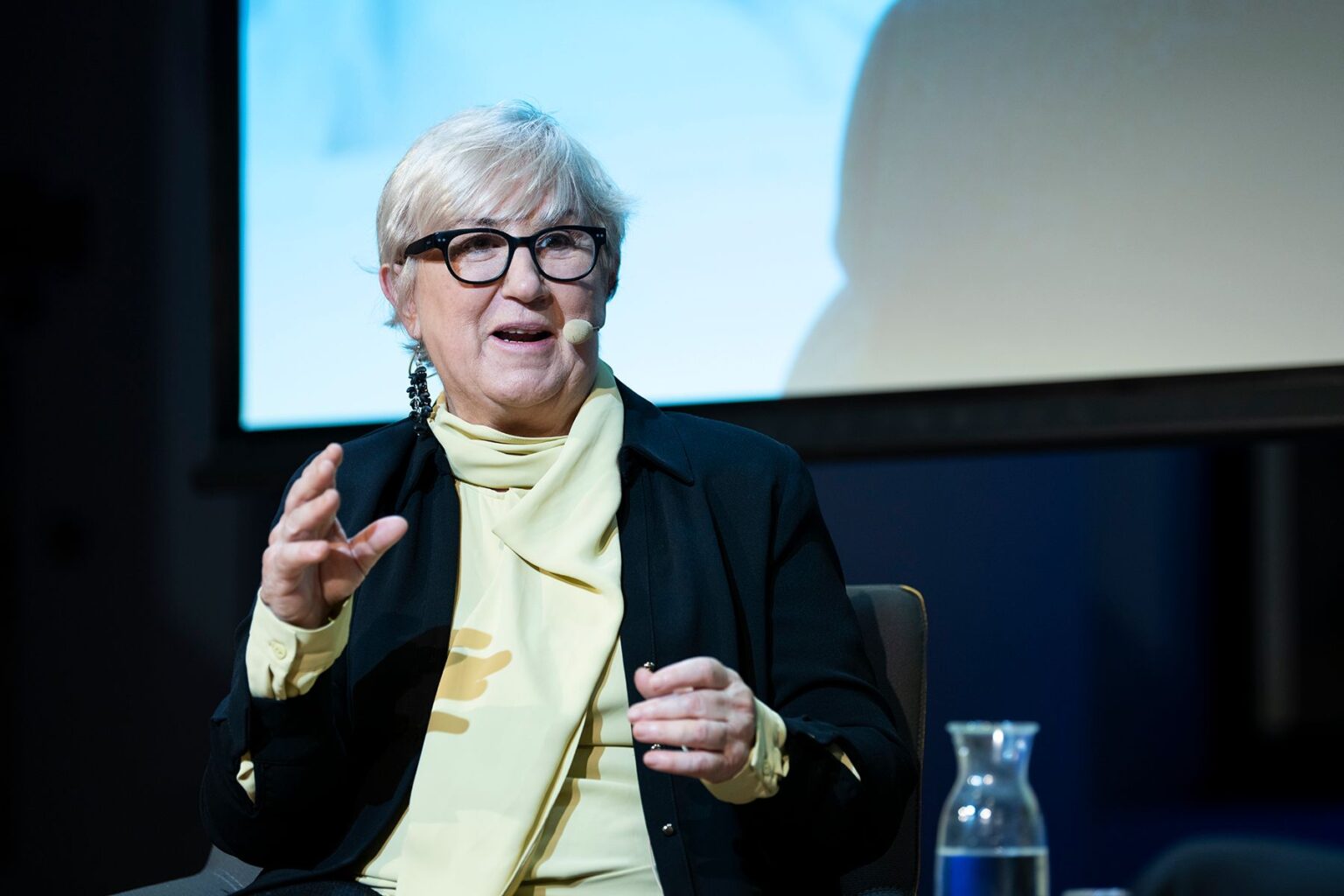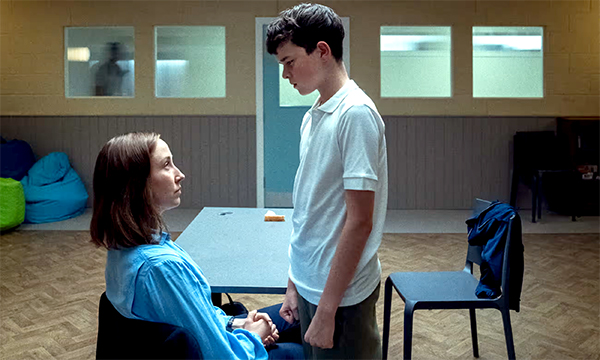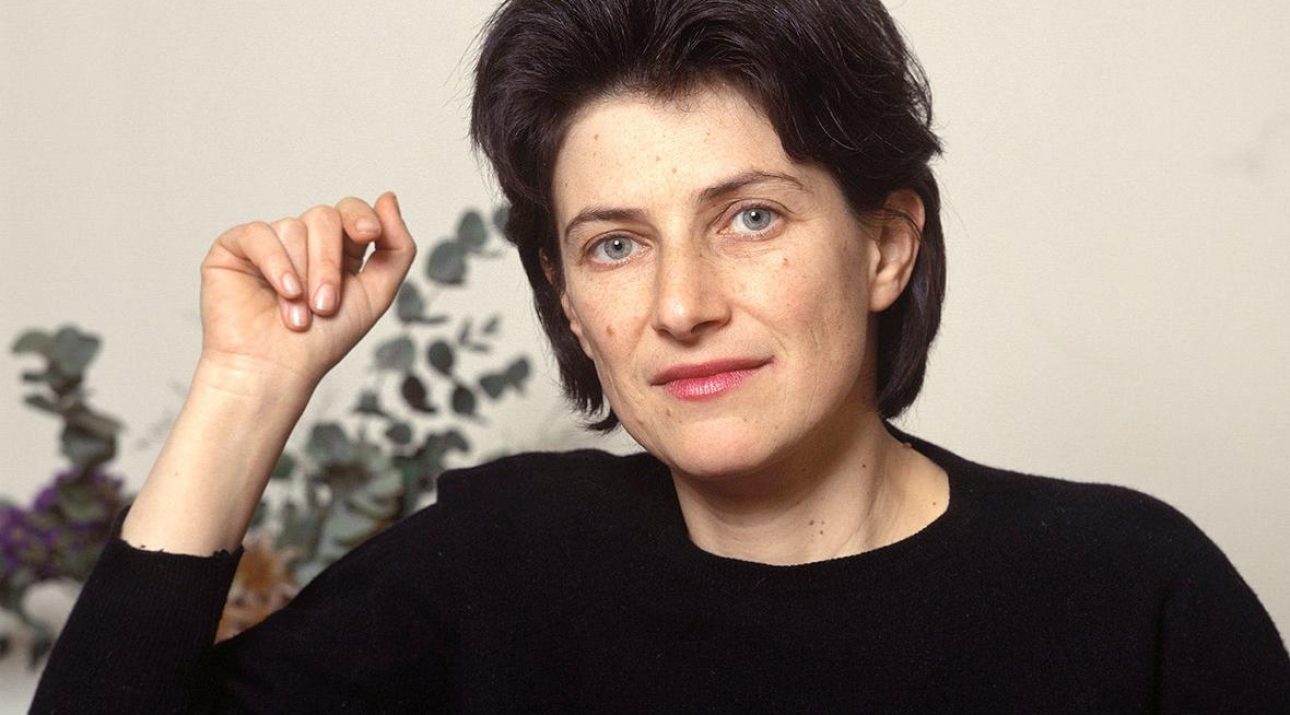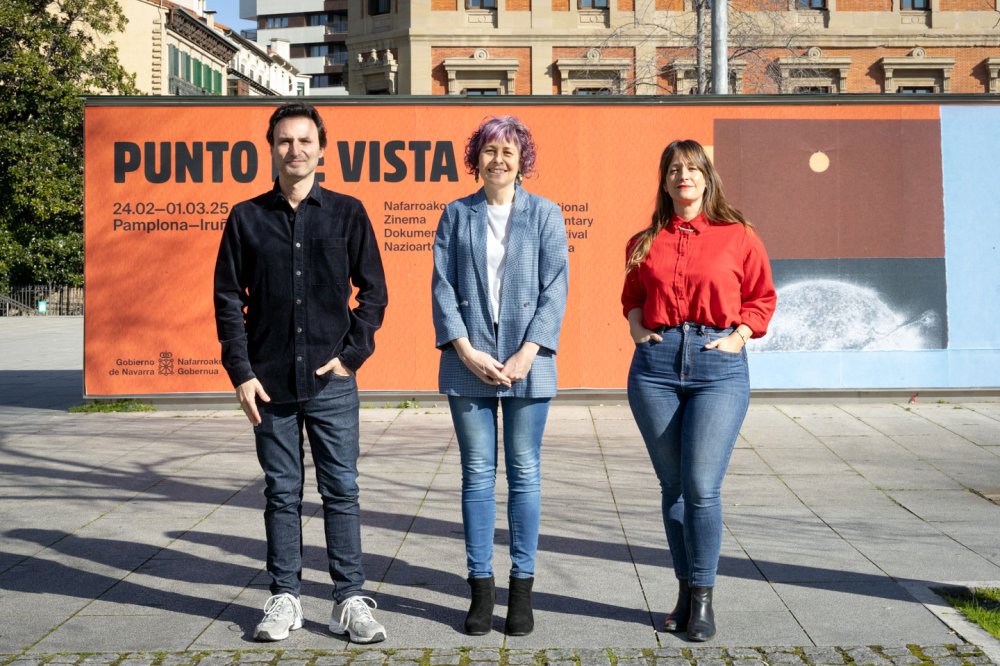"If you don't question the spectators' habits to reach people with political issues, you'll always stay halfway."
- Students from nearby Paris play militant movie scenes from the 1960s and 1970s in front of the camera. These same young people answer questions about what they just played. And between the two situations, a vacuum: the memory of the political struggles of the past, which seems incomprehensible to young people. Jean-Gabriel Périot could be a film about the failure of the working class. It is more than that: an artifact that invites us to reflect on the reappearance of politics and the distance between discourse and action. We took advantage of his presence at the San Sebastian Film Festival to talk to the director.
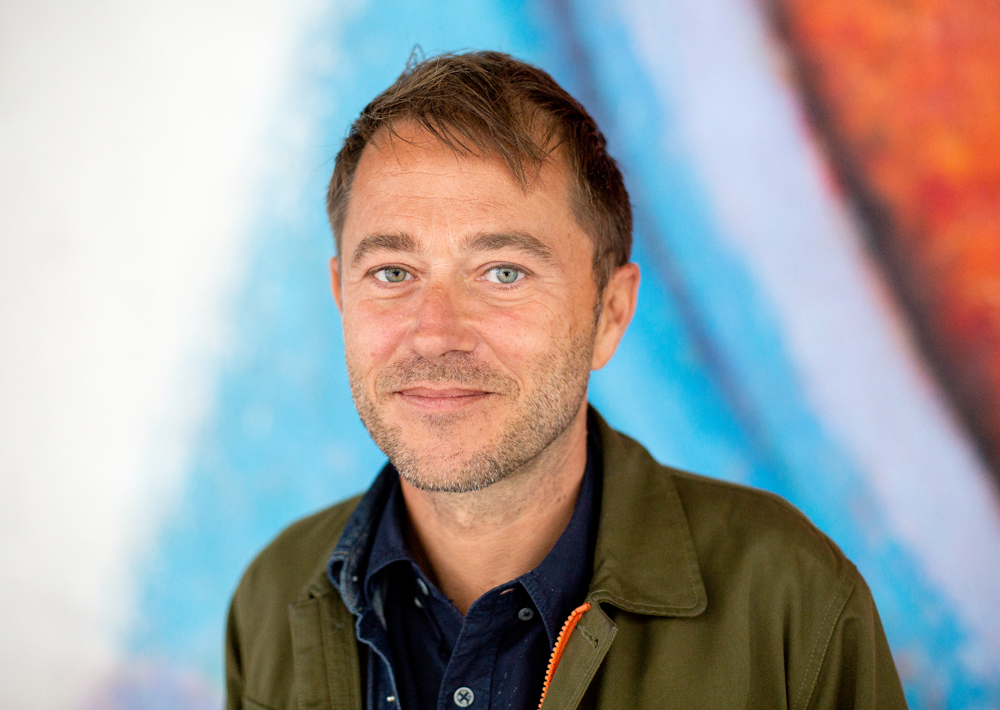
The starting point of Nos défaites is an unexpected meeting: You came to an institute in Ivry-sur-Sein, on the outskirts of Paris, to do a film workshop with a group of students.
When I got to school, I had only one idea: working with the word, with scenes about taking the word. The project began to exist when I taught the students many films, from different countries and times, that gathered many situations of life, and the footprints of words. At one point we come to the Groups’ working films with Medv. I didn't intend to work especially with them, but when I saw the feedback from the students, I realized that something had to be done. On the one hand, they were surprised by the possibility of making films about the working class, at a time when it was also overflowing with energy and struggle. On the other hand, they did not understand anything. They didn't know 68 or politics, they thought it was a bit too far away. From there, we talked a lot. And I came to the conclusion that the best thing we could do to analyze the parts of [militant film] is to reproduce them, understanding how they're filmed, where the microphone was, what they say. That's where the movie started.
With this proposal to recreate archival images, did you intend to respond to our understanding of 68, in some way, to a television? On the 50th anniversary of 2018 many images of that time were repeated...
The most tragic thing was that I realized that 68 -- which for me is contemporary history, a revolutionary movement and something that is still central to thinking about politics -- for students is history and period, like Charlemagne. My intention was to give them the opportunity to reproduce and film them to reappear in their present. It's like when I make an assembly film: it's about bringing stock images to the viewer's present. Here's the same thing, but going through the body. I wondered. Can this story be for them something that is not a dead story? Can we play again in the present?
In the film we see a striking lack of adjustment between the almost perfect recreation that students do with these portions of films and their real political knowledge – they seem to not understand the meaning of the words they say with total precision. How did you negotiate that tension during filming?
In the movie process, I didn't know what the outcome would be. I spent six months with them, and I didn't even know it even if I had a movie. Everything was created while we were rolling. They interpreted the fragments very well: I was surprised by their implication, the scenes were beautiful, very beautiful. After each “remake” I interviewed them. In those moments, I realized that they didn't really understand the words that they had just interpreted. And that plans questions about pedagogy. It was obvious that I was the only one who had talked about these rare things. No doubt, it was something they hadn't learned in school. Not even his parents told him. It's not in the press or on television. There's a tremendous transmission problem. That struck me, I learned that we were rolling, not before.
"You can't make movies about poor people who earn more than a poor man takes their whole life."
The images of Mantes-la-Joli [the police made several students kneel and gave them violent treatment; the video disturbed public opinion] introduce a radical change in the film as an epilogue. What was the impact of reflecting it in the film in the group?
We shot it in June, and in October, I closed the assembly without an epilogue. It was then that the demonstrations of the students Jaka Amarillo and, suddenly, Mantes-la-Jolie began. They are unacceptable images. As they affected a group of young people, I asked Ivry's students about these facts. Then they explained to me that they had just occupied their institute as a protest, they did some painted in the face of the repression of classmates, something that is not so far from Mantes-la-Joli. At that point, I decided to keep the film going and do that last sequence with them. I was very surprised to see how they had grown in such a short time. And above all, it allowed me to explore on an eternal theme: moving from discourse to action.
Do you think that previous work with militant images had any importance in this rapid politicization process?
Not exactly. When they talked to them about the process, they all responded the same. They told me that when we were making the film, they didn't understand anything we were doing. Neither do I. It was kind of an exercise, they liked it, but we all understood what we were doing when they started occupying high school. So many doubts, so many questions, until everything bursts and until you really strike. This allowed them to understand what had been rotated earlier. When at the beginning of the film we see that girl who goes to pickets every day, we realize that something has moved. The film didn't make them more engaged, but maybe it helped them understand some situations, something that can only be understood a posteriori. Unfortunately, however, in a more literal sense, I think it was police repression that made them grow rapidly.
The film deals with sensitive issues in France: questioning the paradigm of national education, police repression... What kind of reception are you having?
The fire has provoked high contrast reactions in the north and south. There are people who understand the film very well, many issues are opened up in the debates. But there are also very violent reactions. There are people who accuse me of patriotism with the students, they say I present them as idiots or fools. I find it very violent, because it is the same people who regard these young people as stupid or stupid. They're not able to understand that, despite their limited language, we see them think, react and move forward. Despite the fact that adults are there, despite the lack of training, they speak to politicize themselves, to strike and at a certain point are linked in their struggle. And if they talk badly, it's because we haven't given them the keys and the language. After all, it is a story about the gaze that, at the head of everything, leads us to an idea of class. The bourgeois spectator on the left always wants to see what he really thinks. Therefore, young people, and especially young people in the vicinity, must be people who face the difficulties, full of energy and able to express themselves correctly. If something does not match this scheme, suspicions arise. It's violent because it betrays the view of class. Poor people, black people, puppets -- they have to be stereotypes. If you overcome it, it's a transgressor.
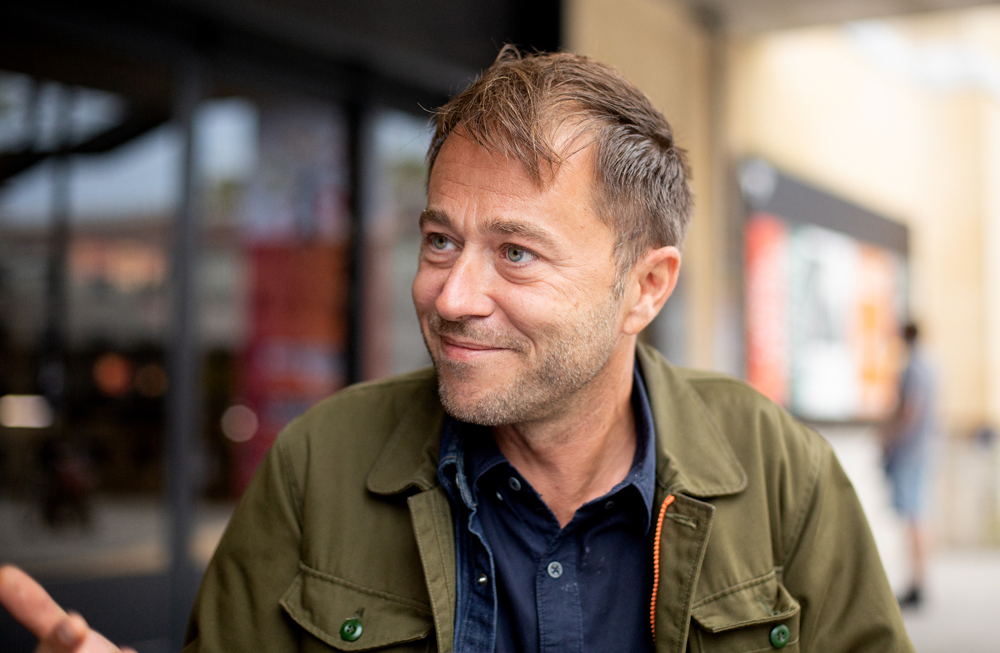
It's not the first time your movies have transformed stereotypes about expropriates. For example, films shot in prisons come to mind.
Yes, for example, I was accused of laughing at the prisoners for the film Le jour a vaincu la nuit. They speak badly in French, they are not handsome, they sing badly. Expropriates must be able to present them in public, know Molière's language well, express them without mistakes... This is especially terrible in jail, because there are often people who don’t speak “good French” or who don’t “dress well” and end up in jail for the same reason that they can’t pay a good lawyer. In Nos défaites the young people do not have the right words to express themselves and what comes to some is that we laugh at them because they are foolish. They make no effort to listen to them.
Formal work is always vital in your movies. This also clashes with a relatively “pretty” tradition of committed cinema, from Ken Loach to some “political” documentaries with television language. Is there a political battle also in shape?
For me, logically, yes. If when we build discourse, we use the enemy's weapons, we've lost it. If to reach the audience with political issues you have to make classic cinema, don't hesitate the spectator's customs, then we will always stay halfway. The films which assimilate the language of television or which have an easy way to foresee, I think they are decorative, it is not right to call them criticism. Take a look at how these poor, the forest that they destroy, watch recycling. Center-left films, which Alain Brossat calls “comfort film.” I mean, we love it, we can get excited by seeing poor people and saying, "Yes, I'm on the left." Often, the films that go further are the ones that try to work the way. It's about saying: attention, here you see a position, a way of taking the word that is expressed differently. In short, it must be made clear that in the reality it shows there are always conscious formal decisions. Another proposal that is mine: never try to be kind to the spectator's customs.
"We can't do counter-stories to face official history: nobody has the means."
Dziga Vertov’s 1970 manifesto and its motto are often referred to as a reference: “Political films have to be made politically.” That is, to give importance to the politicization of work processes before the production of images with political content. How do we make political films today?
I think it can be done in many ways. But there's one thing that starts to be forcibly for me: you never talk about economics with political cinema. In France, films made with good feelings and high budgets are often premiered. Films that are always poor, with actors that charge between EUR 4,000 and EUR 5,000 and with budgets of EUR 4, 5 or 6 million. What's the point of that? What sense does it make politically? You can't make movies about poor people with people who earn more than a poor man takes their whole life. In terms of production, there is something totally illogical. That's not seen in the movie, but there's an ethics of money, often public money: don't spend what you're not going to spend, even if that's why you don't have the best camera. That is something I am very much aware of. Although formally I'm far away, I often think of Chris Marker from the 1960s and 1970s. He went to the factories, he dedicated his time to the technicians, to the other managers. For me, that's the political thing, in the sense of making films politically. Being a militant, because often being a militant means doing things that don't have to bring benefits. The total budget for a film like Nos défaites is EUR 35,000. Because I have a paternalistic view when in some debates I am considered bourgeois ... Well, bring me to the directors who make films with 35,000 euros! And I didn't want any more! When it comes to money, you have to behave correctly with what you do. And that's invisible. For me, production is an important and concrete problem in daily practice. Not having a bad conscience of what I do with money helps me a lot to keep up.
Does your concern about the political economy of cinema have to do with your unusual film journey? He came to the direction from the work of the assembler...
No. It has to do with the arrival of a working-class family. We have always had problems reaching the end of the month. When I entered this profession and started making my films with a little money, I have always earned the SMIC [minimum wage in the French state]. I always tell myself: look, this costs three months of work from an employee or a server. Of course, you have to invest in the cameras and pay the people who work with you well. But that helps you stay alert. When you start counting on salaries, you find everything extraordinarily expensive. Also a cheap movie. Une jeunesse allemande: EUR 800,000. This has been a huge sack of questions for me. Is this movie important enough to cost so much money?
But you worked on that project for ten years ...
Yes, but that doesn't change the problem. The EUR 800,000 has mainly been earmarked for image acquisition. In this case, wages were not the most expensive. For example, a part of the stock images costs EUR 15,000, that is, a part is worth to someone as much as a horrible salary. Is this really necessary? It is a problem of social origin. I think most filmmakers come from good families and have another relationship with money, and for them that's not a problem: it's never enough. For me, it's having too many problems.
This commodification of archival images is particularly absurd when we talk about the images of the radical left. How has this affected your work, with so much concern in republishing history?
It's a tremendous problem. We cannot make or write contradictions to deal with official history. For a simple reason: nobody has the means. Only televisions or superproductions such as the BBC are able to access files calmly. And of course, the stories will tell you in the line of official writing. Therefore, the only way we have to count disputes is to steal them. Debordo said it! The problem was already there. These are very rare exceptions, and that's the energy that pushed me to do Une jeunesse allemande. I told myself that I should be obstinate to the point of doing a counter-history essay. And for that, you had to get into the game: get the money and everything else. That was the only way to make a film that was true to the events that are being told, but that was rather aggressive. But it remains as an exception.
You once wrote a beautiful sentence about the political capacity of film: “A tool that makes little holes in our reality, that helps us not to lose hope completely and, sometimes, in a way similar to miracles, makes us want to keep fighting.” Is it the last political concern of cinema to keep the flame of utopia on?
When you start talking about political or militant cinema, the problem, in my opinion, is the lack of humility. I am referring above all to directors. It was the problem I was facing at the Une jeunesse allemande: they think they are making movies revolutionizing and at that point they fail. And there are a lot of people who have an almost magical faith in film. All artists think they do politics, even when they don't, it's the spirit of the time: it seems that the mere fact of being an artist influences reality. There is a projection that assumes that cinema would be something active, something truly political, like an action. I think it has to be very humble. Cinema, like art in general, is nothing more than a means of realizing that we are not alone, when I see a movie, that there are other directors or people who need to be together in the public, and that gives us strength. But it's something that's among many other things, and in any case, a movie will never be enough. It's one of the elements that help us survive, and for me, that's not bad at all. Debates often say, on the contrary, that if you doubt the capacity of political cinema, that means that cinema is of no use at all. And no! Film can't do much, but it's essential.
No other land dokumentalaren zuzendari Hamdan Ballal kolono sionistek jipoitu zuten astelehenean bere herrian, beste hainbat palestinarrekin batera, eta Israelgo militarrek eraman zuten atxilo ondoren. Astarte goizean askatu dute.
Donostiako Tabakaleran, beste urte batez, hitza eta irudia elkar nahasi eta lotu dituzte Zinea eta literatura jardunaldietan. Aurten, Chantal Akerman zinegile belgikarraren obra izan dute aztergai; haren film bana hautatu eta aztertu dute Itxaro Bordak, Karmele Jaiok eta Danele... [+]
35 film aurkeztu dira lehiaketara eta zortzi aukeratu dituzte ikusgai egoteko Euskal Herriko 51 udalerritan. Euskarazko lanak egiten dituzten sortzaileak eta haiek ekoitzitako film laburrak ezagutaraztea da helburua. Taupa mugimenduak antolatzen du ekimena.
Pantailak Euskarazek eta Hizkuntz Eskubideen Behatokiak aurkeztu dituzte datu "kezkagarriak". Euskaraz eskaini diren estreinaldi kopurua ez dela %1,6ra iritsi ondorioztatu dute. Erakunde publikoei eskatu diete "herritar guztien hizkuntza eskubideak" zinemetan ere... [+]
Geroz eta ekoizpen gehiagok baliatzen dituzte teknologia berriak, izan plano orokor eta jendetsuak figurante bidez egitea aurrezteko, izan efektu bereziak are azkarrago egiteko. Azken urtean, dena den, Euskal Herriko zine-aretoak gehien bete dituztenetako bi pelikulek adimen... [+]
Otsailaren 24tik eta martxoaren 1era bitartean, astebetez 60 lan proiektatuko dituzte Punto de Vista zinema dokumentalaren jaialdian. Hamar film luze eta zazpi labur lehiatuko dira Sail Ofizialean; tartean mundu mailako lau estreinaldi eta Maddi Barber eta Marina Lameiro... [+]
A conference for architects has just been held in Madrid to discuss the crisis of the professional architect. They have distinguished the traditional and contemporary way of being an architect. What is traditional? From the epic architect who appears in The Brutalist, where... [+]











